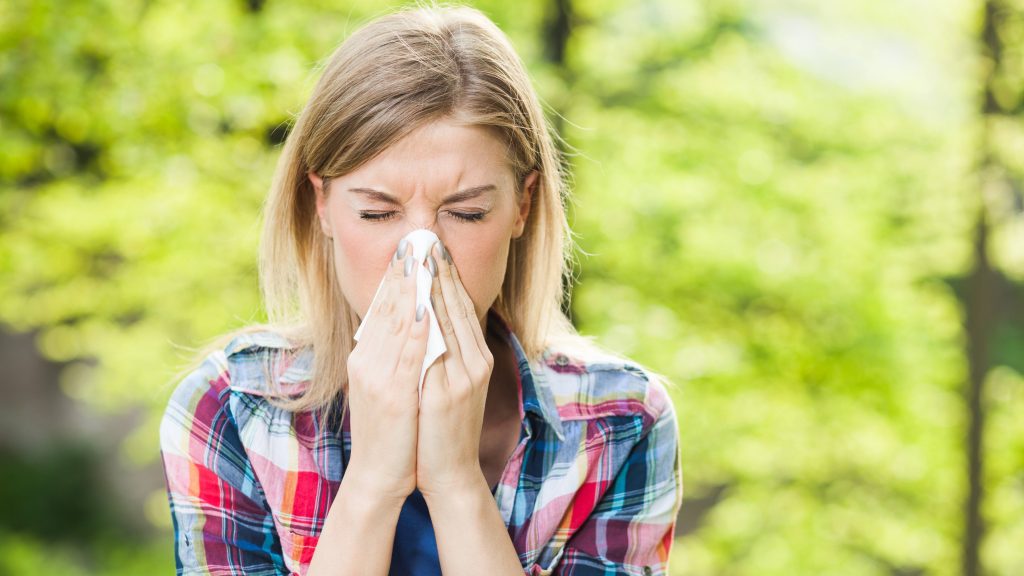-
Mayo Clinic Q and A: Combating allergies, asthma during COVID-19

DEAR MAYO CLINIC: I have significant pollen allergies and asthma. In the spring, I usually have sneezing, coughing and an occasional sore throat that coincides with the trees blooming. With COVID-19 concerns, I am wondering if I am at any increased risk for the virus or need to be concerned that I should be tested?
ANSWER: Certainly, in many parts of the U.S., spring is in full bloom. And with the arrival of spring comes an increase in seasonal allergies, often to the pollen that is produced by trees. Given the situation with COVID-19, many people have questions about increased risk of infection or complications from the virus.
COVID-19 is a respiratory illness that leads to symptoms such as fever, dry cough, shortness of breath and/or difficulty breathing. Symptoms can range widely, from mild to severe. While the Centers for Disease Control states individuals with asthma may be at greater risk for infection with COVID-19, the Academy of Allergy, Asthma and Immunology notes there is no data to substantiate that patients with allergies and asthma are at an increased risk COVID-19.
Allergies, which affect millions of people, occur when a person's immune system reacts to a foreign substance, such as pollen, pet dander or certain foods. Asthma is a condition that causes airways to narrow and swell, and produce extra mucus.
Though certain symptoms may overlap, allergies differ from COVID-19 with respect to the sudden onset of illness and symptoms.
Typical seasonal allergy symptoms include itchy, watery eyes; itchy, runny nose; sneezing; nasal congestion; and postnasal drip. Though you might experience some of the same symptoms with a cold or other virus, COVID-19 symptoms include fever, shortness of breath, difficulty breathing and potentially some gastrointestinal upset.
Though asthma can make breathing difficult, and trigger coughing, wheezing and shortness of breath, if you are asthmatic, you would likely recognize an attack. But it would be unlikely that you would have a fever.
COVID-19 symptoms tend to come on quickly and worsen. With allergy and asthma, a change of scenery and medication can easily help improve symptoms.
If you have allergies or asthma, it is important to know your triggers and make accommodations, especially given the current stay-at-home orders and social distancing guidelines surrounding COVID-19.
For example, if you are allergic to oak tree pollen, but have taken to running outdoors as opposed to in a gym, you may want to reduce your mileage and plan to shower immediately after you complete your exercise. If you know dust is a trigger for your asthma, be mindful to adjust your chore schedule to vacuum or mop more often.
Also, continue to use your steroid inhalers and nasal sprays. Although there has been concern about these medications and their link to increasing the spread of COVID-19, there is no literature to substantiate this. The same is true for saline irrigation. The recommendations are to continue using your asthma and allergy medication, whether over-the-counter or prescription.
For effectiveness, however, make sure you're using your nasal sprays properly. Avoid spraying your septum or nasal bone, which can thin the skin and cause bleeding. Rather, tilt the head down, shake the bottle and then aim toward the ear. Spray and sniff in slowly. Then shake the bottle and repeat in the other nostril.
Also remember to wipe the nozzle down after each use and not share bottles with anyone else.
If you find your current over-the-counter allergy medication is not working as effectively as you'd like, consider switching brands for a short time. Oftentimes, your body can build up a tolerance and the medication may become less effective at controlling your symptoms. Switching to another brand for a few weeks may help.
If your symptoms worsen and you have concerns that you may have contracted COVID-19, you should contact your health care provider. Stay informed on COVID-19 and get your information from reliable sources, such as the Centers for Disease Control and Prevention and Mayo Clinic.— Dr. Arveen Bhasin, Allergy and Immunology, Mayo Clinic, Jacksonville, Florida
For the latest updates on the COVID-19 pandemic, check the Centers for Disease Control and Prevention website. For more information and COVID-19 coverage, go to the Mayo Clinic News Network and mayoclinic.org.







